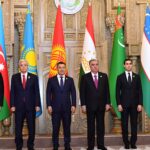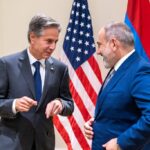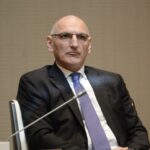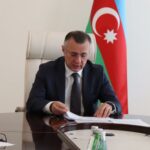As a result, the draft state budget submitted to Parliament was 428.8 billion euros. Since then, heated discussions in parliament and mass opposition protests have not subsided even after the resignation of the country’s prime minister.
It should be noted that this is the first case of state budget cuts for France since 2015. In particular, the authorities plan to stop restraining the growth of consumer electricity tariffs. There will also be cuts in healthcare and economic recovery after the recession caused by the coronavirus pandemic. Later they added to this the scrapping of subsidies for agricultural work, which is literally shaking the country today.
French farmers, the largest agricultural producers in the European Union, complain of unfair competition from agricultural producers from countries with weaker regulations and have already set up roadblocks on major roads to keep competitors’ products out of the country.
At the moment, new Prime Minister Gabriel Attal is looking into ways to further assist French farmers. The government has already abandoned plans to phase out state subsidies for diesel fuel for agricultural use, and has announced other steps to reduce the financial and administrative pressures facing agricultural production.
But the farmers believe even these measures are insufficient. France’s largest farmers’ union, FNSEA, has said it will continue protest rallies, while other unions have threatened to block roads around Paris, as well as the Rungis food market near the French capital.
Farmers in other European countries, including Germany and Poland, are also protesting, saying EU measures to protect their interests from cheaper farming elsewhere are insufficient.
Judging by publications in the French media, the situation in the country is becoming threatening. Farmers’ dissatisfaction with falling incomes due to inflation and increased imports of agricultural products leads to mass protests, in which French farmers demand the simplification of bureaucratic procedures required by the EU and the relaxation of agricultural regulation. In protest, farmers on tractors block major highways and hold mass rallies in front of government buildings.
Major labor unions also promised to block major highways in the capital region. It went so far that Gérald Darmanin, French Minister of the Interior, instructed law enforcement agencies in the capital region to prevent the complete blockade of Paris promised by the protesting farmers.
It appears that the French government does not have enough funds to deal with socio-economic problems, and therefore the ability of the new Cabinet of Ministers to provide its compatriots with the same comfort in the coming years and to minimize the damage caused to France by the years of President Emmanuel Macron’s rule is open to question.
The thing is that on February 8, 2018, the French government announced plans to increase budget spending on defense by more than 40 percent by 2025. In particular, the bill called for an increase in military spending from 34.2 billion euros in 2018 to 50 billion in 2025. Part of the allocated funds should be spent on replacing outdated armored personnel carriers, building aircraft and ships, as well as modernizing the nuclear arsenal. Significant funds are also envisaged for material support and provision of housing for the military and their families.
As the French press notes, under President Macron, the increase in the military budget marked a breakthrough after decades of French austerity with regard to military needs. Macron is the first commander-in-chief in the history of the French Republic who did not serve in the army (he reached the age of conscription after compulsory military service was abolished in 1997—Ed.).
At the same time, the president has repeatedly emphasized his commitment to the armed forces, who are fighting jihadists in West Africa and the Middle East, and patrolling the streets of French cities to prevent the threat of terrorist attacks. Although from the very beginning it was clear that this measure was forced, because Donald Trump during the years of his presidency demanded that NATO member states contribute up to 2 percent of national GDP to the North Atlantic Alliance (France’s contribution in those years amounted to 1.82 percent of GDP—Ed.). Over the past two years, all NATO member states of the European Union have been increasing defense spending also because of the need to counter Russian aggression.
Be that as it may, once-rich France has become perennially cash-strapped. Emmanuel Macron is the first president since François Mitterrand under whom the budget deficit began to grow significantly. According to independent experts, the country simply cannot withstand the pace of the arms race, but at the same time, paradoxically, it does not stop promising increased military support to Armenia, which has already led Paris to the final breakdown of relations with Azerbaijan, whose cooperation with France brought a considerable income to the budget. Macron’s imperial ambition in foreign policy also led France to lose Burkina Faso, Mali and Niger, who announced their withdrawal from the Paris-controlled Economic Community of West African States (ECOWAS).
And the incident with the French Foreign Ministry forbidding its ambassador to Niger to publish a book in which the author analyzes the reasons for President Macron’s monumental failure in Africa has become the occasion for a new scandal around French foreign policy.
For now, the French Cabinet of Ministers under various pretexts is dodging the allocation of additional funds not only for solving domestic problems, but also for foreign policy.
For example, Paris, following the United States, the United Kingdom, Canada, Germany and other countries, stopped funding the UN Relief and Works Agency for Palestine Refugees in the Near East (UNRWA) amid reports about the involvement of UNRWA workers in the Hamas attack on Israeli cities on October 7, 2023. There have also been calls in France to cut off military aid to Kyiv, some of which is ending up in the pockets of Ukrainian corrupt officials.
Against such an unfavorable socio-political and diplomatic background for France, President Macron urgently needs to carry out deep reforms and restore business cooperation with the countries that bring income to his country’s budget. And this is where the absolute illogic of Paris’ efforts to strengthen the defense capabilities of Armenia, a country cooperation with which has never brought anything but disappointment and losses to anyone, becomes obvious.
Suffice it to take the example of Russia, which not only created Armenia, but also supplied it with energy, fed and fed it for two centuries. As soon as Russia weakened a little and was caught in the currents of geopolitical turbulence, Yerevan instantly and with no hesitation swung towards France, who, in turn, is also in a difficult situation today, which means that….
But why do we keep talking about Armenia, who, like an age-defying young pioneer, is always eager to defect to a stronger partner without a hint of remorse?
But with whom will France, after losing part of Africa and its influence in the Middle East, after falling out with Türkiye and Azerbaijan and consequently failing to gain a foothold in the South Caucasus, be left in the end?
To paraphrase Henry of Navarre, who converted to Catholicism to become king of France saying, “Paris is well worth a Mass,” one wants to ask: “Is Yerevan worth it…?”
Elnur Mammadov
Translated from Haqqin.az










